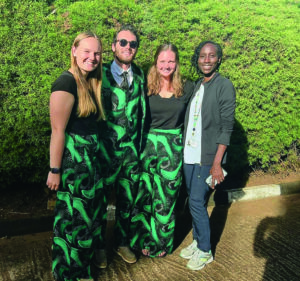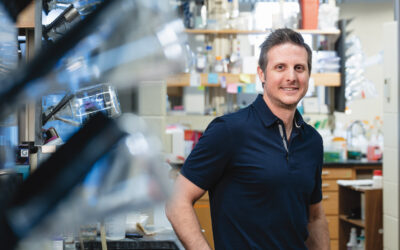Tuesday, January 14, 2025
Support the Kenya initiative today!
Purdue launched its pharmacy partnership with the AMPATH (the Academic Model Providing Access to Healthcare) program in 2004 to respond to the unprecedented HIV epidemic ravaging countries like Kenya. The AMPATH Consortium, led by Indiana University, is a network of academic health centers that work with the Kenyan Ministry of Health to improve health care services across western Kenya. Pharmacy students from Purdue work alongside a multidisciplinary team of Kenyan and North American providers who provide novel community-based care to underserved populations while gaining valuable hands-on experience in developing and delivering sustainable health care worldwide.
“Through our longstanding partnership and deep-seated integration with AMPATH, we’ve been able to build state of the art infrastructure and impactful research and teaching programs that have revolutionized care in this region,” says Sonak Pastakia, professor of pharmacy practice and one of the on-the-ground leads for the Purdue Kenya Partnership. “Our success is a result of our prioritization of always leading with care. By prioritizing the needs of the population we serve, our success has always been measured by the number of people we help to improve their health. This approach has attracted numerous different funding agencies to get behind our model for improving the health of entire populations.”
Twenty years ago, AMPATH’s focus was in combating the HIV epidemic in Sub-Saharan Africa. While the organization’s commitment to the HIV epidemic remains a top priority, its programs have transitioned from a reactive response model to a comprehensive population health model that addresses not only clinical needs, but also social determinants of health. For the next 20 years, Pastakia envisions more integration and expansion.
“We’re currently expanding some of these novel population health efforts,” he says. “We’ve linked microfinance to clinical care, and we’ve enabled cooperative formation for agriculture groups to help farmers increase the economic output of their farming activities. We’re proposing to expand these efforts in Mexico, Nepal and Ghana, which are AMPATH replication sites. In addition to continuing to develop services in western Kenya, we want to build replicable models that could positively impact other under-resourced populations around the world.”




